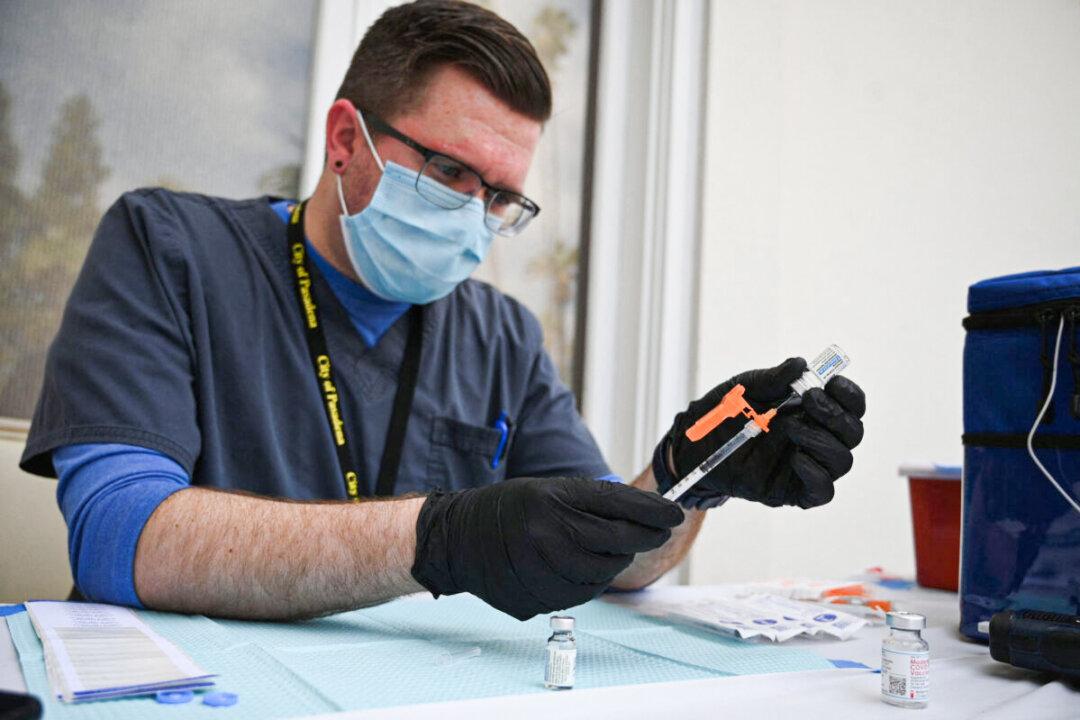A panel of advisers to the Centers for Disease Control and Prevention (CDC) unanimously voted on Thursday to recommend the agency tell the public that the Moderna and Pfizer COVID-19 vaccines are preferred to the jab from Johnson & Johnson (J&J).
“mRNA COVID-19 vaccines are preferred over the Janssen COVID-19 vaccine for the prevention of COVID-19 for all ≥ 18 years of age,” the recommendation states.





